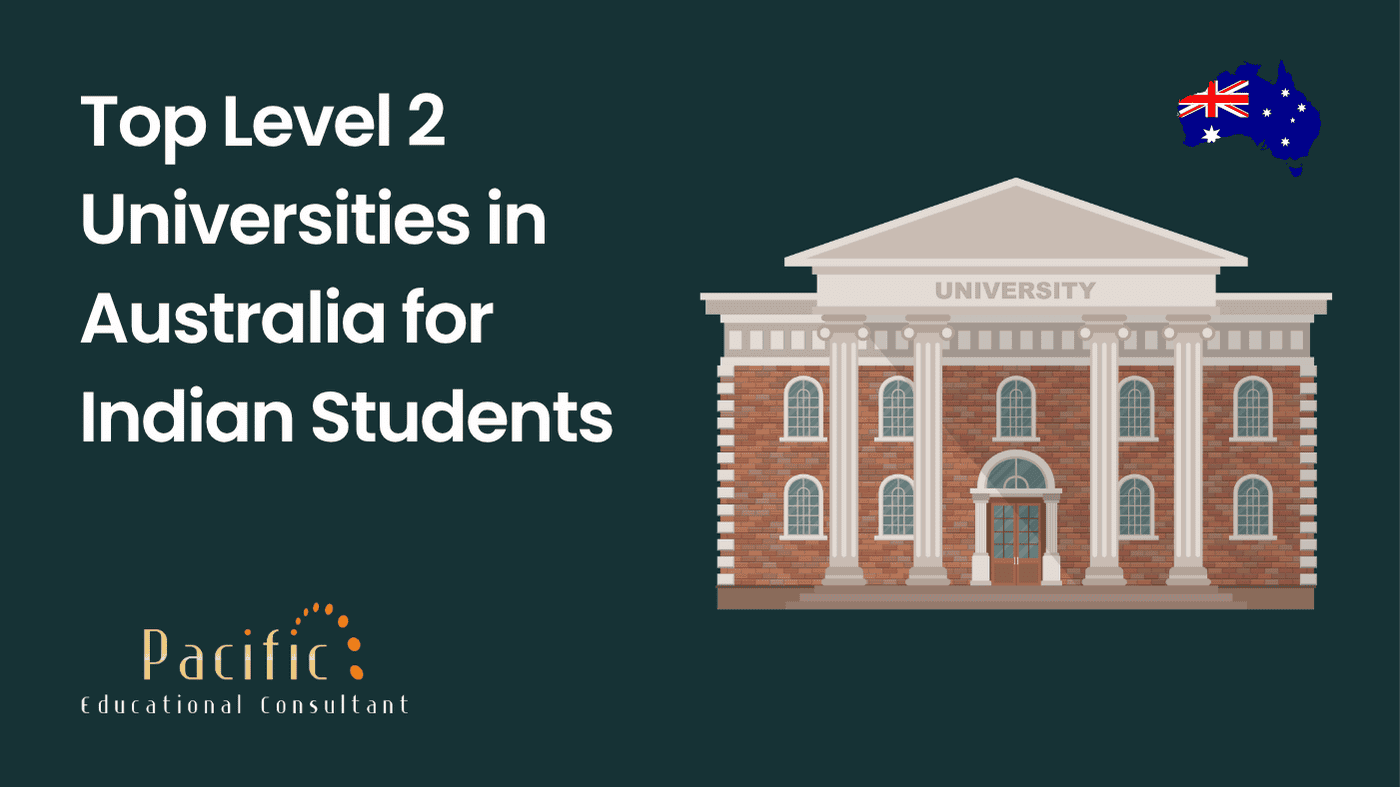


Official preparation guides are also available for language proficiency exams like the IELTS and TOEFL. But what exams must you take to make your dream a reality? The world of international admissions can be overwhelming, with different countries and universities having their own requirements. However, fear not! This guide will walk you through the exams commonly required by universities for admission to undergraduate programs.
From the SAT and ACT to the IELTS and TOEFL, we'll explore each exam's purpose, format, and preparation tips, helping you easily navigate the exam maze. Whether you're aiming for universities in the United States, United Kingdom, Canada, Australia, or elsewhere, this guide will equip you with the knowledge you need to ace your exams and secure admission to your dream university abroad.
So let's start this exciting journey towards studying abroad after 12th, unlocking boundless opportunities along the way!
Studying abroad after completing your 12th grade can be one of the most transformative experiences of your life. It allows students to immerse themselves in a new culture, gain a global perspective, and develop essential life skills that cannot be acquired in a conventional classroom setting. By stepping outside your comfort zone, you enhance your academic qualifications and foster personal growth, adaptability, and resilience. This journey can significantly shape your future, making you more competitive in the global job market.
Moreover, international universities often provide high-quality education and access to cutting-edge research facilities. They boast diverse programs that cater to various interests, ensuring that students can find a course that perfectly fits their career aspirations. Additionally, studying abroad provides exposure to different teaching methodologies and educational practices, enriching the learning experience. This diversity prepares students to think critically and creatively, which is increasingly valuable in today's interconnected world.
Another compelling reason to study abroad is the chance to build an international network. Meeting peers from different backgrounds and cultures can lead to lifelong friendships and professional connections. These relationships can open doors to job opportunities and collaborations in the future. Studying abroad is not just about earning a degree; it's about gaining experiences that will equip you for success in a globalized society.
When considering studying abroad, several countries are popular destinations for international students. The United States is often at the top of the list, known for its prestigious universities and diverse range of programs. Institutions like Harvard, Stanford, and MIT attract students worldwide. The American education system also emphasizes practical experience and research opportunities, making it a great choice for ambitious students seeking to advance their careers.
The United Kingdom is another favored option, with renowned universities such as Oxford, Cambridge, and Imperial College London. The UK offers a rich historical and cultural backdrop and various undergraduate programs. Many universities in the UK also offer shorter degree courses, allowing students to graduate sooner and save on tuition fees. The blend of tradition and innovation in British higher education makes it appealing to students who seek a well-rounded academic experience.
Australia has become a top contender for students seeking a vibrant lifestyle and high-quality education. Institutions like the University of Melbourne and the Australian National University allow students to enjoy world-class education in a stunning environment. The Australian education system is known for its focus on practical skills and research, making it a great choice for students interested in fields such as science, technology, and engineering. Australia's friendly and multicultural atmosphere is often cited as a significant draw for international students.
Studying abroad after 12th grade has many benefits beyond academic advancements. One of the most significant advantages is the opportunity to learn a new language. Immersing yourself in a foreign environment naturally encourages language acquisition, enhancing your communication skills. Proficiency in multiple languages can set you apart in the job market, making you a more attractive candidate to potential employers who value global communication abilities.
Cultural exposure is another vital benefit of studying abroad. Living in a different country allows students to experience new customs, traditions, and lifestyles firsthand. This exposure fosters cultural sensitivity and understanding, qualities that are essential in today's globalized society. Students develop empathy and open-mindedness by interacting with people from diverse backgrounds, contributing to personal and professional success.
Finally, studying abroad promotes independence and self-reliance. Being away from home and navigating a new environment encourages students to step up and take responsibility for their decisions. This experience cultivates essential life skills such as problem-solving, time management, and adaptability. As students learn to manage their academic responsibilities alongside daily life in a foreign country, they emerge as more confident and capable individuals, ready to face future challenges.
To pursue higher education abroad, students often need to take specific standardized exams that demonstrate their academic readiness and language proficiency. The SAT (Scholastic Assessment Test) and ACT (American College Testing) are two of the most common exams required for undergraduate admissions in the United States. These tests assess students’ knowledge in areas such as mathematics, reading, and writing, helping universities evaluate applicants’ potential for success in college-level courses.
For students looking to study in English-speaking countries, proficiency in the English language is crucial. The IELTS (International English Language Testing System) and TOEFL (Test of English as a Foreign Language) are standardized tests designed to measure English language skills. These exams evaluate listening, reading, writing, and speaking abilities, ensuring students can effectively communicate academically. Different universities may have varying score requirements, so it's essential to check the specific criteria for each institution.
In addition to these exams, some countries and universities may require subject-specific assessments or entrance exams based on the intended field of study. For example, students aspiring to pursue engineering might need to take the SAT Subject Tests or other relevant tests like the JEE (Joint Entrance Examination) in India for specific programs. Understanding the requirements of each target university is crucial for crafting a successful application strategy.
Understanding the eligibility criteria for the various exams required for studying abroad is essential for prospective students. Each exam has specific requirements that candidates must meet to register and take the test. For instance, the SAT and ACT typically require students to have completed their high school education, and most candidates are in their final years of high school. While there are no strict age limits, students usually take these exams during their 11th or 12th grades.
The IELTS and TOEFL exams also have their eligibility criteria, primarily focusing on the level of English proficiency. While there are no formal prerequisites regarding educational background, most students who take these tests are non-native English speakers looking to demonstrate their language skills for university admissions. It's important to note that different universities may have specific score requirements for these tests, so students should verify the eligibility criteria for their desired institutions.
Moreover, some specialized programs may have additional prerequisites. For example, prospective medical or engineering students may need to prove their performance in relevant subjects or take additional entrance exams. Understanding these requirements early in the process will help students prepare adequately and avoid any last-minute hurdles hindering their application.
Preparing for exams that are essential for studying abroad requires a strategic approach to ensure success. The first step is to familiarize yourself with the exam format and structure. Each exam, whether it's the SAT, ACT, IELTS, or TOEFL, has its own unique sections and types of questions. Reviewing official study guides and practice tests can provide insight into what to expect on test day. This knowledge will help you tailor your study plan to focus on the areas that require the most attention.
Creating a comprehensive study schedule is crucial for effective preparation. Allocate time for each subject or section of the exam, ensuring that you cover all the necessary materials. Consistency is key—studying a little daily is often more effective than cramming at the last minute. Incorporate a variety of study methods, such as reading textbooks, watching instructional videos, and practicing with mock exams. This diverse approach can help reinforce concepts and improve retention.
Additionally, consider joining a study group or enrolling in preparatory courses. Collaborating with peers can enhance your understanding of challenging topics and provide motivation to stay on track. Many students benefit from the accountability and support that study groups offer. If possible, seek guidance from experienced tutors or educators specializing in exam preparation, as they can provide valuable insights and strategies tailored to your needs.
Choosing the right study materials and resources is vital for effective exam preparation. The official preparation books published by the College Board and ACT, Inc. are excellent starting points for the SAT and ACT. These books contain real past questions, detailed explanations, and strategies for tackling each section. Additionally, online platforms like Khan Academy offer free resources and practice tools specifically designed for SAT preparation, making it accessible to all students.
Official preparation guides are also available for language proficiency exams like the IELTS and TOEFL. The British Council and ETS provide comprehensive resources, including practice tests, vocabulary lists, and tips for improving language skills. Online courses and apps like Duolingo can supplement these materials, helping students practice their language skills interactively. Engaging with native speakers through language exchange platforms can also effectively enhance speaking and listening proficiency.
Finally, online forums and communities can provide support and motivation during preparation. Websites like Reddit and College Confidential have dedicated threads where students share their experiences, study tips, and resources. Engaging with these communities can provide encouragement and insight from others who are going through the same journey. Remember, the key to successful exam preparation lies in variety, consistency, and utilizing available resources effectively.
Navigating the exam registration process is crucial in preparing to study abroad. Each exam has its own registration website where students can create an account, select their preferred test date, and pay the associated fees. To secure a spot, completing this process well before the desired test date is essential, as popular dates can fill up quickly. For instance, the SAT and ACT have multiple test dates throughout the year, giving students flexibility in choosing when to take the exam.
Understanding the important deadlines for registration is vital to avoid last-minute rushes. Registration deadlines for standardized exams can vary significantly, with some requiring students to register several weeks in advance. For example, the TOEFL often has a registration deadline of approximately seven days before the test date, while the IELTS may have deadlines that are a bit more flexible. Keeping track of these dates in a calendar or planner can help students stay organized and ensure that they don’t miss out on their preferred test date.
Additionally, students should know the deadlines for sending their scores to universities. Most institutions require that test scores be submitted by a specific date as part of the application process. Familiarizing yourself with the application timelines for your target universities will help you plan your exam dates accordingly. Being proactive about registration and deadlines ensures that students can focus on their preparation without the added stress of last-minute arrangements.
Achieving success on exam day requires thorough preparation and strategic approaches to test-taking. One of the most effective strategies is to develop strong time management skills. Familiarize yourself with the timing of each exam section and practice pacing yourself during mock tests. This will help you gauge how much time to allocate to each question, ensuring that you can complete the exam without feeling rushed. Remember, answering every question is crucial, as there may be no penalty for guessing.
On the day of the exam, ensure that you get a good night's sleep before test day. Being well-rested enhances focus, concentration, and overall performance. Start the day with a nutritious breakfast to fuel your brain and maintain energy levels. Arrive at the testing center early to give yourself ample time to settle in and reduce anxiety. Ensure to bring all required materials, including identification, registration confirmation, and any permitted items like calculators.
Finally, practice mindfulness techniques to manage test-day anxiety. Deep breathing exercises, visualization, and positive affirmations can help calm nerves and boost confidence. It’s essential to approach the exam with a positive mindset, reminding yourself of the preparation and hard work you’ve put into this journey. Stay focused on each question, and take it one step at a time. Remember, this exam is just one part of your broader academic journey, and regardless of the outcome, you are building valuable skills and experiences along the way.
In conclusion, studying abroad after 12th grade is a significant step towards unlocking a world of opportunities. From broadening your academic horizons to experiencing diverse cultures, the benefits are immense and transformative. However, navigating the pathway to international education involves understanding the various exams required for admission, preparing effectively, and managing the application process with diligence.
By familiarizing yourself with the types of exams, eligibility criteria, and preparation strategies outlined in this guide, you can confidently approach your study abroad journey. Remember that each step you take brings you closer to your goals, and the challenges you face along the way will only add to your resilience and adaptability. Embrace this exciting adventure, and soon, you will find yourself on the path to achieving your dream of studying abroad—one that will undoubtedly shape your future in extraordinary ways.

Describe a famous person you would like to meet - IELTS Cue Card

Describe a time when someone gave you something that you really wanted - IELTS Cue Card

Describing a Time When You Needed to Search for Information - IELTS Cue Card

Top Level 2 Universities in Australia for Indian Students

Describe a Difficult Thing You Did and Succeeded In – IELTS Cue Card

Describe a problem you had while shopping online or in a store - IELTS Cue Card

Describe a person you have met who you want to work/study with - IELTS Cue Card

Describe a story or novel you have read that you found interesting - IELTS Cue Card

Describe a program you like to watch - IELTS Cue Card

Describe a website that sells second-hand items - IELTS Cue Card